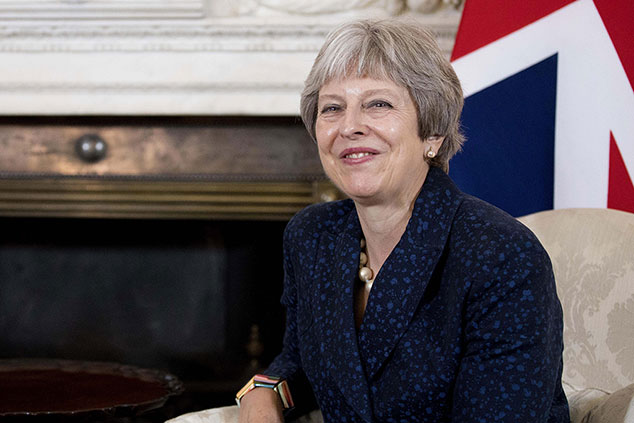
This article is taken from our FREE daily investment email Money Morning.
Every day, MoneyWeek’s executive editor John Stepek and guest contributors explain how current economic and political developments are affecting the markets and your wealth, and give you pointers on how you can profit.
In this week’s issue of MoneyWeek magazine
●
There’s nothing to fear from the rise of the machines
●
A successful first half for fans of investment trusts
●
Three cheap and interesting aircraft leasing funds
●
Three biotech stocks to buy now
●
Avoid rip-off car-hire charges on holiday
● Share tips of the week
Not a subscriber? Sign up here
Big egos flouncing off all over the place.
Difficulties working together as a team.
Desperately grabbing for glory at the expense of the wider strategy.
No, it’s not the World Cup (indeed, that behaviour has been conspicuously absent in this particular tournament) – it’s Westminster.
The perfect excuse to resign while saving face
Yesterday was a busy day for political journos. Brexit secretary David Davis has quit, along with his deputy Steve Baker. Boris Johnson then decided to go too.
So what happened at Chequers at the weekend, to cause all this kerfuffle? Here’s what it boils down to. The government is opting for a “soft” Brexit.
This should not be a huge surprise. We’ve said for a long time – both before and since the referendum – that the most likely outcome of any Brexit vote was something along the lines of EEA membership (here’s a piece from June 2016 by Merryn, outlining some of the options).
And we’re fine with that outcome. For me, Brexit was primarily about two things. One, stepping firmly off the ever-closer integration train, and making it harder for future prime ministers to press for getting back on it (don’t forget that joining the euro was a live question for much of Tony Blair’s time in power, and that if Gordon Brown hadn’t been such a control freak we might well have done so).
Two, restoring some accountability to our politicians and civil service. Brussels has proved a convenient all-purpose scapegoat – much like “’ealth’n’safety” – for poor domestic policy-making. The 2004 expansion of the EU, and Britain’s almost-unique refusal to take advantage of an option for delaying the inevitable influx of newcomers – which I suspect is probably more responsible for the Brexit vote than any other political decision in recent years – is one prime example.
I realise that not much of this is about economics. It’s about the structure of our democracy, which is much more important in the long run.
So that’s that. The problem of course, is that a lot of ministers branded themselves as “hard” Brexiteers. That makes it difficult for them to back this particular plan. It also gives them the ideal opportunity to throw in the towel without losing too much face.
Davis has been looking for the right excuse to resign for ages. He’s clearly not a “details” man, and I imagine he was bored with his brief. Johnson has dug himself into a pretty deep hole and probably feels the best bet is to retreat, lick his wounds, and figure out how to relaunch himself in the future.
I suspect that Jacob Rees Mogg will hang about because of a genuine sense of loyalty to the party. Steve Baker has resigned on a genuine point of principle, which I can respect, but it’s also a classic case of what happens when idealism meets politics.
(To be clear, all of this is my opinion. I’m not a lobby hack, so I have no inside information to spill here – but you don’t have to be especially perceptive to pick up all these things.)
So what happens now?
The Conservatives are still stuck with Theresa May
For all the talk of chaos, the Conservative party is still stuck with the same problem it had before. If not May, then who?
For every Jacob Rees Mogg fan in the party, there’s another who is absolutely opposed. Same goes for Ruth Davidson, only in the opposite direction. So if you do have a leadership election then you’re almost certain to end up with another compromise candidate – May mark 2.0.
Not only that, but they will hardly endear themselves to the electorate. The Conservatives run the risk that they try to get themselves a new leader and instead we all end up with Jeremy Corbyn in charge.
So, while it’s not out of the question by any means, it seems unlikely.
The reality is, it does not seem that there is much alternative but to carry on with May. The fact that the pound slid then came back after Johnson’s resignation, suggests that markets have tentatively decided the same thing.
As for the EU – it seems unlikely that they will reject May’s deal out of hand. That’s not to say that it won’t – politics is even less rational than markets, and pure intransigence or personality clashes can end up shifting events in ways that none of us could expect.
However, if the EU does simply shoot this plan down, it would put May in an impossible position. She’d probably have to quit. The risk then is that you definitely get a full-on hard Brexit, which involves the kind of disruption that both sides would rather avoid.
Now, any of this can change at any point. This is the starting point for further talks. There will be more sticky moments, and the government is undoubtedly very fragile.
But for now, strange as it may seem, this is business as usual.
We’ll have more on this in the next issue of MoneyWeek magazine, out on Friday.